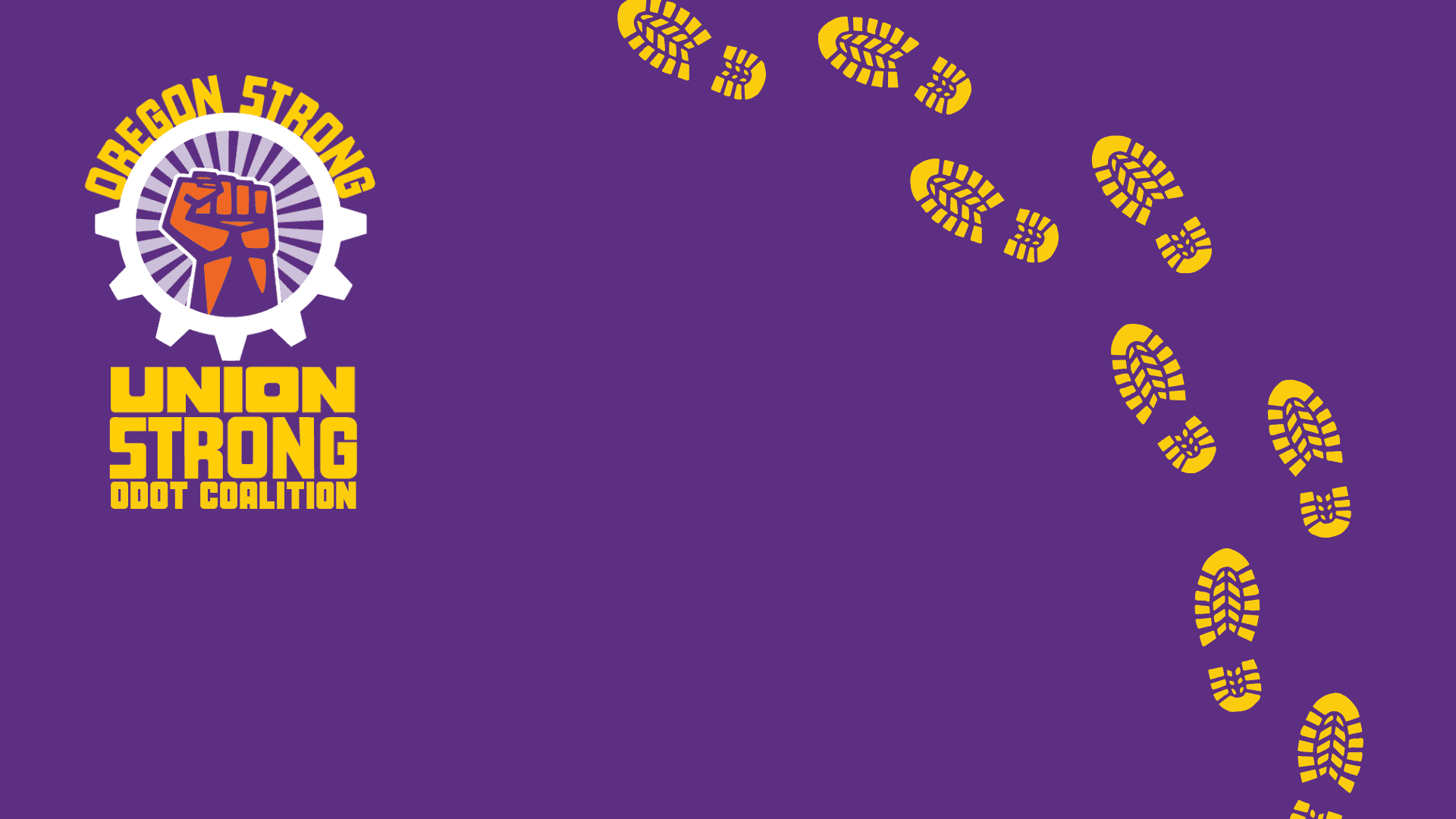1. CDL Petition and Advocacy:
- Issue: Some ODFW employees are required to hold a Commercial Driver’s License (CDL) even though their job doesn’t require driving large trucks. Despite this responsibility, they are not compensated at a higher rate.
- Concerns: CDL holders face higher responsibilities, including stricter regulations (e.g., lower blood alcohol limits of 0.04% for CDL holders compared to 0.08% for others). They also risk drug testing, which could have significant consequences for their personal lives.
- Call to Action: Our union is pushing for these employees to receive a CDL differential pay rate. A petition was shared via our union website and QR code, urging all members to sign in support of this cause. Participation in this petition was framed as crucial for the bargaining process and our union’s ability to win such a benefit.
2. Bargaining Updates:
- Bargaining Strategy: ODOT coalition bargaining delegates recently met to discuss strategy and upcoming negotiations. Our union is reviewing the survey results from workers, which showed a high response rate, indicating strong member engagement.
- Survey Insights: The survey has highlighted various issues such as gear, safety, and working conditions that will shape bargaining priorities. It’s also vital for our union leadership to know what issues matter most to workers so that they can advocate effectively.
- Key Wins: Our union emphasized that securing workers' rights doesn’t always require money. For example, seasonal employees being recognized as internal candidates for future positions and recall rights.
3. Contract Action Teams (CATs):
- Role of CATs: These teams are essential for building union solidarity. The teams help spread awareness about union actions, such as petitions or upcoming bargaining sessions, and encourage coworkers to participate. CATs are especially important in large worksites, where a single representative can’t easily communicate with everyone.
- Engagement and Participation: Members were urged to consider volunteering to become a CAT representative at their worksite. Our union explained that CATs act as a bridge between union leadership and workers, helping ensure active involvement, especially when actions need to be taken quickly. https://seiu503.org/get-involved/become-a-member-leader/cat-signup/
- Training for CATs: There are upcoming trainings on topics like what a CAT does, how to organize workers, and how to facilitate engagement. Francesca Edmonds, one of our union organizers, mentioned that some of these trainings could be tailored to specific issues like the CDL-related concerns.
4. Upcoming Trainings:
- Training Resources: Our union’s SEIU 503 website has an event calendar listing various trainings, including those for CAT members. Additionally, Francesca offered to personally assist those interested in becoming more involved or enhancing their CAT roles, particularly around specific issues like CDL-related concerns.
- Focus on Communication: Our union stressed that most of the work of a CAT is done informally—chatting with coworkers during breaks or while working, sharing information about petitions, rallies, or actions that need to be taken. The goal is to get coworkers engaged in union activities without overwhelming them with a time-consuming commitment.
5. Layoffs and Budget Cuts:
- Governor’s Budget and Impact: There’s concern over potential budget cuts and layoffs due to the Governor’s recommended budget. Some positions are at risk, with the agency anticipating cuts to certain roles. Our union emphasized the importance of understanding which positions are vulnerable and being proactive in communicating with HR about available options.
- Layoff Protections: Our union highlighted the strong contract protections for laid-off workers, including the right to bump into positions at the same pay grade or remain on a layoff list for future openings. Layoffs are subject to strict protocols, ensuring that seniority and job classification are prioritized in case of job loss.
- Proactive Communication: Employees who may be affected by the cuts were encouraged to reach out to a steward, manager, and HR early, rather than wait for layoffs to occur. Discussions should involve identifying potential job openings in the agency that align with employees’ skills or pay grades.
- Hardship Fund: Our union also mentioned the hardship fund, which is available to assist members financially in case they face a short-term layoff or financial hardship, although this fund is limited.
6. Facilities and Safety Concerns:
- Pendleton Office: Plans to build a new, eco-friendly office in Pendleton, with solar panels and other sustainable features, were discussed. The building design includes advanced safety features like automatic door buttons, though some components are surprisingly expensive.
- Clackamas Office Update: There were rumors about the rebuilding or demolition of certain buildings at the Clackamas site. It was confirmed that some buildings would be replaced, likely including a barn used by district biologists, with plans for new office spaces. Our union raised concerns about parking issues at Clackamas, which have been longstanding due to limited space and inconsistent enforcement.
7. Payroll One-Pager:
- Payroll Issues: Our union discussed ongoing problems with understanding and using Workday, the payroll system. A one-pager is being developed to simplify and clarify the process for members. Our union is pushing for this document to be more digestible and help employees navigate the system more easily.
- Clarification on Pay: The issue of workday and payroll discrepancies has been a persistent issue, and members are hoping for clearer guidance on how to navigate the system.
8. Article 107 - Job Protection for Injury or Illness:
- Contract Provisions: Article 107 of our union contract requires that the agency meet with our union annually to discuss workplace injuries, how they were handled, and what training might be needed to prevent further incidents. Our union was advocating for better representation in these meetings, and we can have broader representation of different worksite roles (field workers, office staff, etc.).
- Safety Committees: Our union is also working to improve safety measures, particularly concerning worksite injuries and how they are handled by management.
9. Holiday Social and Union Engagement:
- Holiday Social: A holiday gathering was planned in Salem, where union members were invited to meet informally, share food, and discuss union matters. Members from other areas were encouraged to organize similar events locally, with support from union organizers.
- Promoting Solidarity: Emphasis was placed on building solidarity across different departments and agencies, such as ODOT and forestry workers. These cross-coalition efforts are aimed at solving common problems and building unity within the workforce.
10. Miscellaneous:
- Leadership Transitions: Our union acknowledged that Ken, a key figure in the agency’s leadership, will be transitioning permanently to his current role, and members were curious about how this might affect future LMC (Labor Management Committee) meetings. Ken’s title has changed but Ken will continue to be the Director’s Office representative at LMC. We see Ken as a supportive partner who has helped improve the tone of our meetings and the conditions of our staff.
In closing, Steve Emerson urged members to utilize their paid time off and participate actively in union activities, encouraging everyone to take advantage of the contract’s benefits, like governor’s holidays. He reiterated the importance of staying proactive in the face of budget cuts and layoffs, ensuring that all members know their rights and options.

